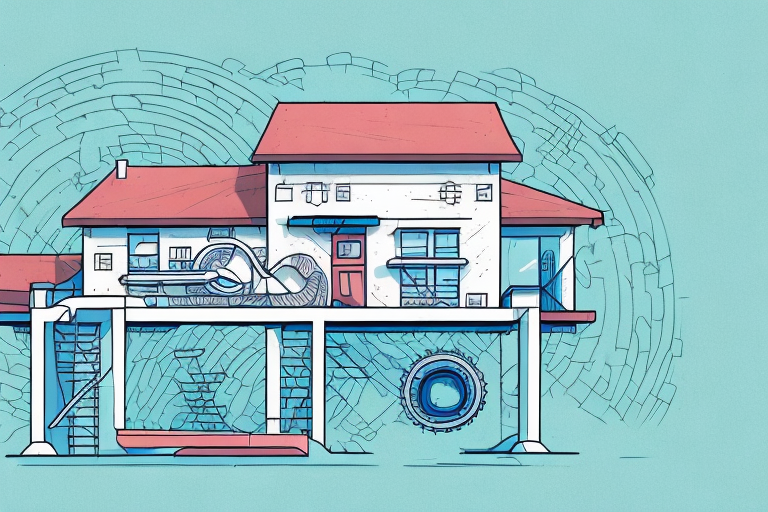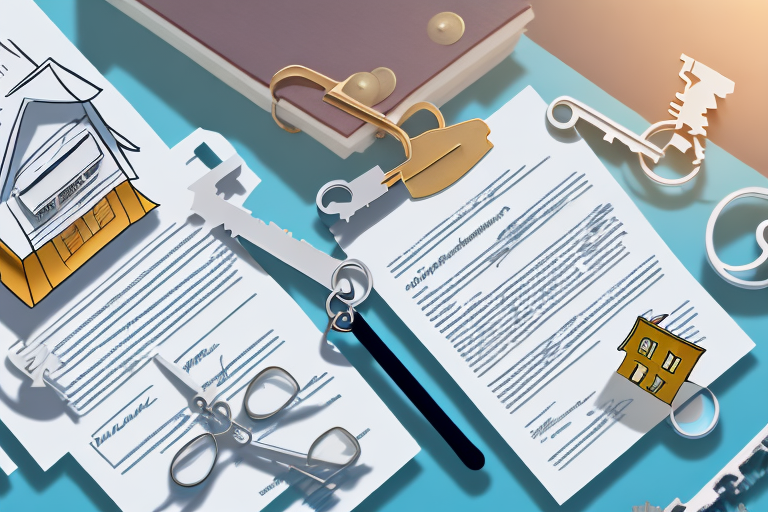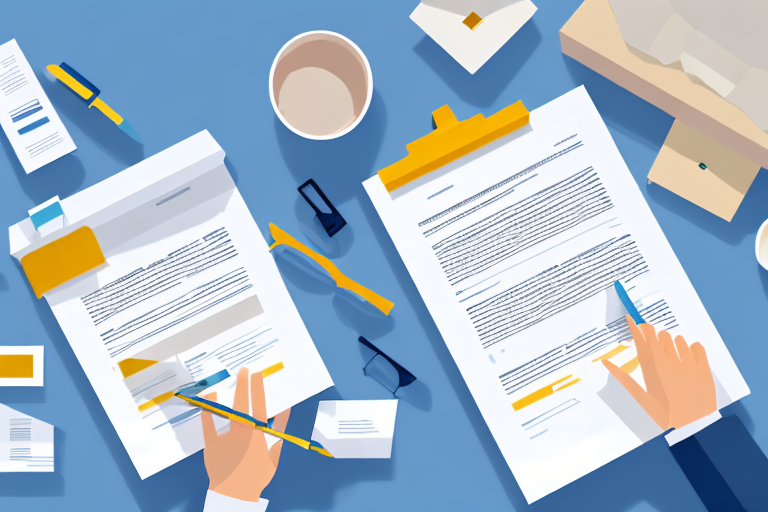A Step-by-step Guide to the Conveyancing Process
If you’re looking to buy or sell a property, you’ll need to go through the process of conveyancing melbourne. It can seem overwhelming, but with the right guidance, you’ll be able to navigate it with ease. In this guide, we’ll walk you through each step of the conveyancing melbourne process.
Understanding the Conveyancing Process
What is Conveyancing?
Conveyancing is the legal process of transferring ownership of a property from one person to another. It involves the preparation and exchange of contracts, property searches, and completion of the transaction. This is a complex process that requires the expertise of a conveyancer or solicitor who can guide you through the process and ensure that everything is done legally and correctly.
One of the most important aspects of conveyancing melbourne is the exchange of contracts. This is when the buyer and seller agree to the terms of the sale and sign the contract. Once this has been done, the sale becomes legally binding and the buyer must pay a deposit. It is important to note that until the contracts have been exchanged, either party can back out of the sale without penalty.
Why is Conveyancing Important?
Conveyancing is a crucial step in buying or selling a property because it ensures that the transfer of ownership is legal and binding. It helps to protect both the buyer and the seller by ensuring that all necessary checks are carried out. These checks include things like verifying the identity of the buyer and seller, checking for any outstanding debts on the property, and ensuring that all necessary planning and building regulations have been met.

Another important aspect of conveyancing melbourne is carrying out property searches. These searches can uncover important information about the property, such as whether there are any planning restrictions, if there are any rights of way across the land, and whether there are any environmental issues that could affect the property.
Key Players in the conveyancing melbourne Process
There are several professionals involved in the conveyancing melbourne process who play different roles:
Conveyancer or Solicitor
A legal professional who guides you through the process and carries out the necessary legal work. They will prepare and exchange contracts, carry out property searches, and ensure that the transfer of ownership is legal and binding.
Estate Agent
An intermediary who helps to find a buyer or seller for the property. They will often handle negotiations between the buyer and seller and may also arrange property viewings.
Mortgage Lender
A financial institution that offers a loan to the buyer to help finance the purchase of the property. They will carry out their own checks on the property and the buyer to ensure that the loan is a safe investment.
Surveyor
A professional who carries out a survey on the property to identify any issues that could affect its value. This can include things like structural problems, damp, or subsidence.
Land Registry
The government department responsible for registering land and property ownership in England and Wales. They will update the register to reflect the change in ownership once the transaction has been completed.
Overall, conveyancing is a complex process that requires the input of several different professionals. This ensures that the transfer of ownership is legal and binding and protects both the buyer and the seller. If you are buying or selling a property, it is important to work with a reputable conveyancer or solicitor who can guide you through the process and ensure that everything is done correctly.
Pre-Contract Stage
The process of buying or selling a property can be a daunting task, especially for first-time buyers. However, with the right guidance and support, it can be a smooth and stress-free experience. The first step in the conveyancing melbourne process is to find a reputable conveyancer or solicitor who can guide you through the process.
Choosing a Conveyancer or Solicitor
When choosing a conveyancer or solicitor, it is important to find someone who is experienced and knowledgeable in the field of conveyancing. Make sure to shop around and compare quotes from several professionals to find the best fit for your needs.
It is also important to choose someone who is easily accessible and responsive to your needs. A good conveyancer or solicitor will keep you informed throughout the process and answer any questions you may have.

Property Searches and Surveys
Before the contract is signed, your conveyancer will carry out several searches to ensure that there are no issues with the property. This may include a search for planning permission, land registry checks, and a survey of the property.
The purpose of these searches is to identify any potential problems with the property, such as boundary disputes or planning restrictions. Your conveyancer will advise you on the results of these searches and any implications they may have for the sale.
A survey of the property will also be carried out to identify any structural issues or defects that may affect the value of the property. This will help you to make an informed decision about whether to proceed with the purchase.
Drafting and Reviewing the Contract
Once the necessary searches have been carried out, your conveyancer will draft a contract that outlines the terms and conditions of the sale. This will be reviewed by both parties to ensure that everything is accurate and fair.
It is important to review the contract carefully and seek legal advice if necessary. Your conveyancer will be able to explain any legal jargon and advise you on any potential risks or issues.
Once the contract has been agreed upon, it will be signed by both parties and the sale can proceed to the next stage.
Exchange of Contracts
Exchange of contracts is a crucial step in the process of buying and selling property in the UK. It is the point at which the transaction becomes legally binding for both the buyer and the seller. The exchange of contracts usually takes place several weeks before completion, which is the date when the buyer takes possession of the property.
Negotiating Contract Terms
Before the contracts can be exchanged, there may be negotiations between the buyer and seller over certain terms and conditions. This is an important stage in the process, as it allows both parties to ensure that they are happy with the terms of the sale. Negotiations may include the price of the property, fixtures and fittings, and completion date. It is important for both parties to be clear about their expectations and to communicate openly throughout the negotiation process.
It is also important to note that once the contracts have been exchanged, it is very difficult to make changes to the terms of the sale. Therefore, it is essential that both parties are happy with the terms before the exchange takes place.
Paying the Deposit
Once the contracts have been agreed upon and signed, the buyer will need to pay a deposit to secure the purchase of the property. The deposit is usually 10% of the purchase price, although this can vary depending on the agreement between the buyer and the seller.
The deposit is held by the seller’s solicitor or conveyancer until completion. If the buyer fails to complete the purchase, the seller may be entitled to keep the deposit as compensation for any losses they have incurred.

Setting a Completion Date
The completion date is the date when ownership of the property is transferred. This is agreed upon by both parties and will usually take place several weeks after the contracts have been exchanged. The completion date is an important milestone in the process, as it is the point at which the buyer becomes the legal owner of the property.
It is important for both parties to ensure that they are ready to complete on the agreed date. This may involve arranging for the transfer of funds, arranging for removals, and ensuring that any outstanding issues, such as repairs or surveys, have been resolved.
Overall, the exchange of contracts is a complex process that requires careful attention to detail and clear communication between the buyer and seller. By working together and seeking professional advice where necessary, both parties can ensure that the transaction runs smoothly and that they are happy with the outcome.
Post-Exchange Stage
Preparing for Completion
Before completion, your conveyancer will carry out a final check to ensure that everything is in order. This may include arranging for the transfer of funds, clearing any outstanding bills, and preparing for the final exchange of documents.
It is important to note that completion day is not the same as the day you will get the keys to your new property. Completion day is simply the day when the legal ownership of the property is transferred from the seller to the buyer.
Your conveyancer will also ensure that any outstanding issues, such as repairs or maintenance, have been addressed before completion. This will help to avoid any disputes or delays in the future.
Final Searches and Checks
Before the completion date, your conveyancer will carry out a final search to ensure that no issues have arisen since the contract was signed. This may include a final search of the land registry.
The final search is an important step in the conveyancing process as it ensures that there are no outstanding issues or disputes that could affect the sale of the property. If any issues are identified during the final search, your conveyancer will work to resolve them before completion.
Transfer of Funds
On the day of completion, the buyer will need to transfer the remaining balance of the purchase price to the seller’s solicitor. Once this has been completed, ownership of the property will be transferred to the buyer.
It is important to ensure that the funds are transferred on time to avoid any delays or complications. Your conveyancer will work with you to ensure that the funds are transferred in a timely and efficient manner.
Overall, the conveyancing process can be complex and time-consuming, but it is an essential step in buying or selling a property. With the help of a qualified conveyancer or solicitor, you can navigate the process with ease and ensure that everything is done legally and properly.
It is important to choose a conveyancer or solicitor who is experienced in handling property transactions and who can provide you with the guidance and support you need throughout the process.
By working with a professional, you can ensure that your transaction is completed smoothly and efficiently, giving you peace of mind and allowing you to focus on enjoying your new home.
More to read: The Role of Conveyancing in Real Estate Transactions



